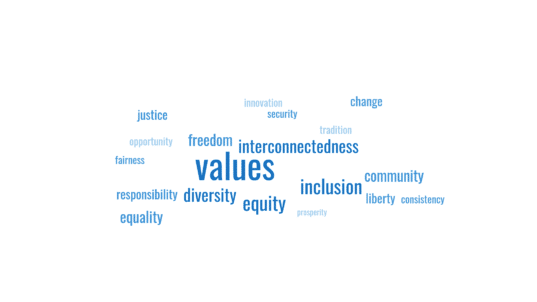Within the Interactivity Foundation, and as part of our continuing and internal development, we frequently discuss how to make our conceptual possibilities more “useful” for public discussion. And related to that ongoing discussion, we’ve had a number of recent postings on our Perspectives blog around how to “evaluate” IF possibilities—how to understand or interpret what they mean and what they don’t. While such abilities and concerns are undoubtedly important, I’d briefly like to add an additional perspective and shift the focus somewhat from the correct “evaluation” of our possibilities to how they might serve as effective starting points for discussion—even, or perhaps especially, when they are incorrectly understood or evaluated.
My additional perspective may just derive from a somewhat different interpretation of our overall objectives. I see our goal as focused more on sharing and expanding a discussion process and less on sharing any particular policy content. To that end, the content of the possibilities is, no doubt, important and, I hope, helpful to generating thoughtful, deep, interactive, insightful and productive discussions about the public policy concerns, conceptual frameworks, possible implementations, consequences and other aspects of a particular topic. However, I generally don’t see our objective as achieving “correct” understandings or engaging in Talmudic textual interpretations of particular possibilities. Undoubtedly, achieving a “correct” understanding of the text and what the past discussions meant is altogether a helpful, desirable, and in some cases perhaps a necessary first step. But in my view, the essential goal is to have a good current discussion of the overall topic with the participants in that room. The textual possibilities—whether correctly understood or even completely misunderstood—are but a means and a possible catalyst to that end. They are not ends in themselves.
Some of our best public discussions have demonstrated this point: there have been great (as well as bad) discussions that arose (and in some cases only arose) because of a misunderstanding or alternate interpretation of the original possibility. Conversely, some of our dullest and least engaged discussions have arisen from possibilities that were both well expressed and equally well understood by the participants. Seeing the possibility clearly stated, the participants often just didn’t see much need (or intellectual space) for further discussion.
I guess that I see our role as more of “facilitators” for deep public discussions of a topic overall and not so much as adult “educators” of either specific sub-content or correct exegesis.



